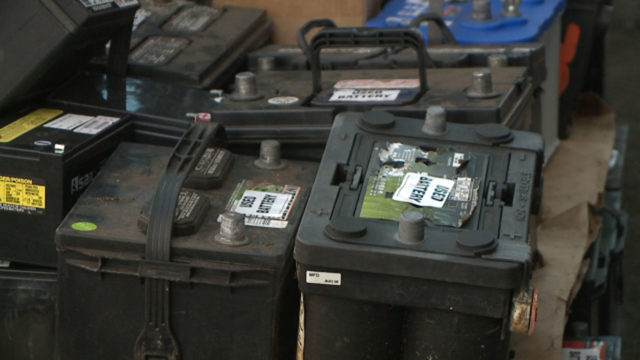Experts in the environment sector have expressed dismay over the ways used batteries are dumped in locations where their chemicals may cause harmful effects to the environment, biodiversity and citizens.
They revealed this at a forum on implementing the extended producer responsibility programme for waste battery collection and recycling in Abuja, adding that only ten recycling firms cannot cope with the volume generated in the country.
The Director and Executive Secretary of the Alliance for Responsible Battery Recycling (ARBR), Terseer Ugbor, said they have worked towards collecting data and evidence of growing battery usage and recycling activities, explaining that Nigeria is a high lead-acid polluting zone.
Ugbor also stated that batteries with heavy metals such as mercury, lead, cadmium or nickel, are being released into the environment from indiscriminate disposal through collection, transport and recycling processes.
He said on a daily basis, Nigerians rely on batteries for their cars, mobile phones, generators and backup energy systems for households, businesses and mini-grid systems, adding there is a need to fast-track actions on waste commodities is now.”
“These are mostly collected by collectors, broken and unfortunately toxic acids released into the environment. The manufacturing, industrial, hospitality, commercial institutions, educational and medical sectors also consume high amounts of batteries for energy storage. It is difficult to estimate the quantity.”
The National Environmental Standards and Regulations Enforcement Agency (NESREA), Director for Inspection and Enforcement, Mrs. Miranda Amachree, regretted that increasing application of batteries, especially in renewable energy is generating so many waste batteries, including Used Lead Acid batteries (ULABs), among others in the country.
She said to control used waste management activities, the Federal Government has developed National Environmental Sanitation Policy for effective, efficient and sustainable strategies, including waste minimisation at source through re-use, recycle and energy recovery before final disposal.
She further stated that the burden of waste battery management is taken over by the manufacturers, adding, it is now their responsibility to cater for the products they generated, and this will involve recyclers and Federal Ministry of Environment.
Contributing, an expert, Dr. Livinus Nwakwo, expressed disappointment on the way the commodity is managed from the collection, transportation to the point of storage, noting, these processes should be adequately monitored.
On her part, Sharifat Lawal of the Abuja Environmental Protection Board, called on the governments at all levels to do the needful so that waste batteries are recycled in the appropriate processes for the safety of the environment and the people.
A consultant, Dr. Gilbert Adie, in his presentation on ‘Waste Lead Acid Battery and Li-ion Batteries Management: Collection, Storage and Transportation,’ said: “As the world’s population continues to rise, more people will need cheap energy for lighting and other purposes.
Adie argued that Nigeria has an ambitious plan of having 30 per cent energy mix by 2030, with the federal government has already installed five million solar power across the country estimated to serve about 25 million people currently unconnected to the national grid.

